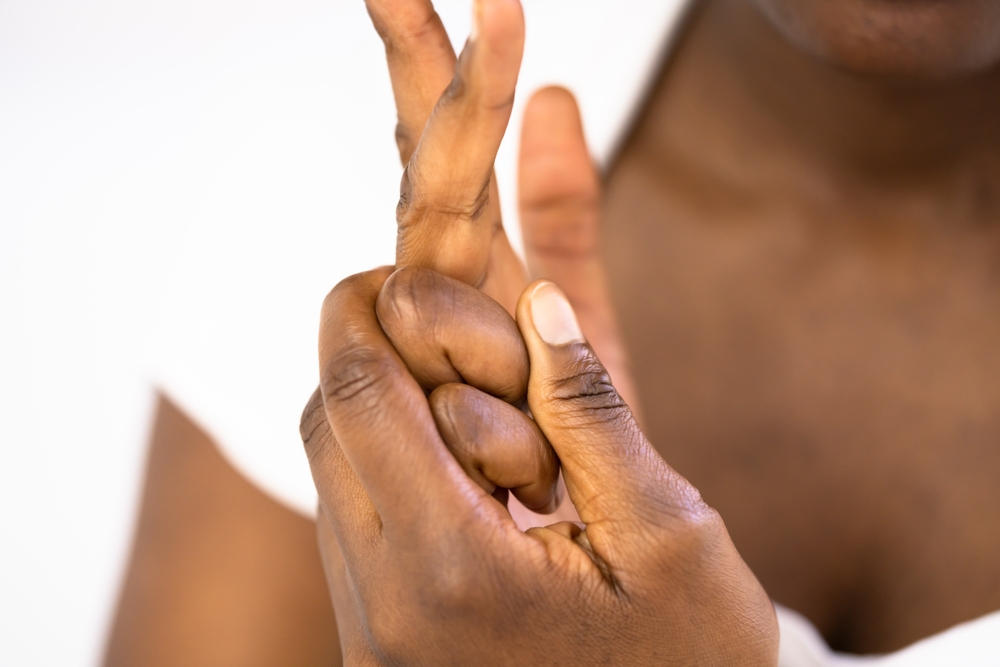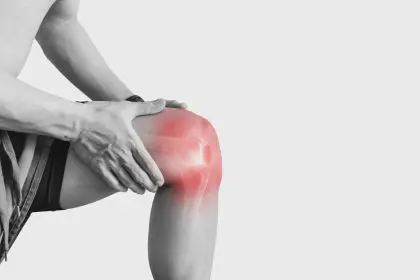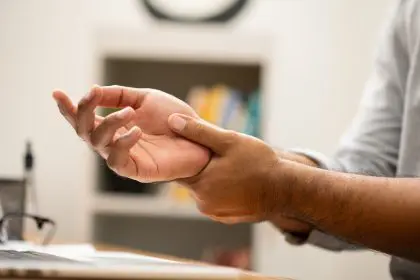Cracking your knuckles might feel satisfying, but it often earns disapproving looks or even dire warnings. For decades, people have believed that this seemingly harmless habit could lead to arthritis or joint damage. Yet, science paints a far more nuanced picture.
The mechanics of the pop
That pop you hear when you crack your knuckles isn’t your bones grinding or snapping into place. It’s the sound of gas bubbles rapidly collapsing in the fluid that lubricates your joints, called synovial fluid. This clear, viscous substance helps reduce friction between your bones and makes movement smoother.
When you stretch or pull a joint—like when cracking your knuckles—the space between the bones increases. This drop in pressure causes gases like carbon dioxide to form a bubble. When the bubble bursts or collapses, it produces that signature cracking sound.
It’s painless for most people and typically doesn’t indicate any damage or injury.
Common myths debunked
Myth: It causes arthritis
This is perhaps the most popular myth, often passed down from older generations. However, decades of research have failed to find any strong connection between cracking your knuckles and developing arthritis. A famous case involved a doctor who cracked the knuckles on one hand for over 60 years, never doing so on the other. He found no difference in the function or health of either hand.
Myth: It wears down joints
There is no conclusive evidence that habitual knuckle cracking leads to joint wear. Medical imaging of chronic crackers shows no greater incidence of joint degradation than those who don’t engage in the habit.
Myth: It’s a sign of anxiety
While some may crack their knuckles when nervous, it’s also just a common habit. Like nail-biting or fidgeting, knuckle cracking can serve as a way to release tension or provide sensory feedback. It doesn’t always mean something is emotionally wrong.
Is it harmful?
In most cases, the answer is no. Cracking your knuckles is not inherently harmful. It doesn’t lead to arthritis, dislocation or ligament damage when done gently. However, there are a few exceptions worth noting.
Excessive force can be problematic. If you use a lot of pressure or aggressively bend your fingers to get that crack, you could strain ligaments or injure soft tissue over time.
If cracking is accompanied by pain, swelling or stiffness, it could signal another problem that needs medical attention.
While medically harmless, the sound of knuckles cracking can be annoying or even disruptive in shared spaces like classrooms or offices.
What science shows
Recent MRI studies and ultrasonic imaging have advanced our understanding of what happens during knuckle cracking. These scans show that bubbles are not only formed and collapsed, but may also linger briefly after the crack. This explains why you can’t immediately re-crack the same knuckle—your body needs time for the gases to re-dissolve.
Studies published in reputable medical journals confirm that habitual cracking has little to no long-term health impact on joints. In fact, one study involving over 200 participants found no significant correlation between cracking frequency and joint problems.
Any potential benefits?
Though cracking your knuckles offers no proven medical benefit, many people say it brings a sense of relief. Some feel their fingers move more freely after cracking, even if temporarily. For people with desk jobs or repetitive tasks, cracking can serve as a short break from stiffness.
The sensory satisfaction—that pop can be mentally soothing—is similar to the satisfaction of stretching after a long rest.
However, these are subjective experiences rather than medically validated advantages.
When to be concerned
Cracking that’s accompanied by sharp pain, grinding sensations or swelling should never be ignored. These may indicate tendon issues, ligament sprains, joint instability or early signs of arthritis.
In such cases, consulting a health care provider or orthopedic specialist is the safest course of action.
Breaking the habit
Even though knuckle cracking is largely harmless, some people want to stop due to social pressure or personal preference. Here are a few tips that help:
- Keep your hands busy: Use stress balls or fidget tools
- Increase awareness: Track when and why you crack to identify triggers
- Stretch mindfully: Perform gentle hand stretches instead of forceful pops
- Talk to a professional: If it stems from anxiety, consider behavioral strategies
Like any habit, it can take time to replace, but it’s very doable.
Hand health tips
Even if cracking isn’t harmful, taking care of your joints is always smart. Here are practical ways to promote hand health:
- Stay hydrated: Synovial fluid depends on adequate hydration to protect joints
- Exercise your hands: Use hand grips or squeeze balls to keep muscles strong
- Stretch regularly: Especially if you work at a computer or perform repetitive tasks
- Practice proper ergonomics: Avoid positions that strain your fingers or wrists
- Warm up in cold weather: Cold joints are more prone to stiffness and minor injury
The verdict
So, what really happens when you crack your knuckles? Science says it’s mostly harmless, driven by joint pressure changes and the collapse of gas bubbles. It doesn’t cause arthritis, doesn’t wear down your joints and may even feel satisfying.
Still, be mindful of how and when you do it. Gentle movements are key. Avoid forceful techniques, listen to your body and stay alert to any pain or discomfort.
The next time someone warns you about cracking your knuckles, you can offer a calm, evidence-based response—maybe with a satisfying snap of your fingers.















